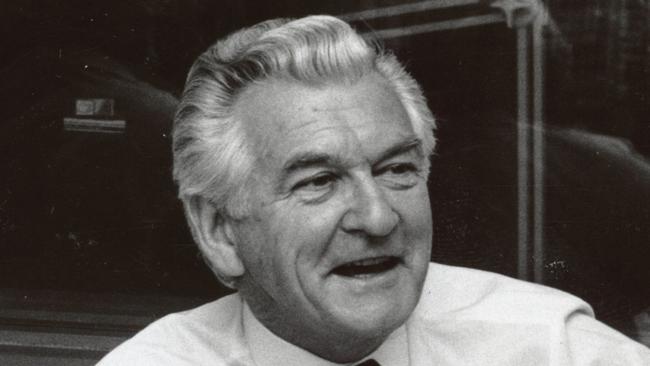Great leaders love people – it’s why they can win hearts and minds

The only good photograph taken of me in the past five decades was taken for Playboy magazine. (So you don’t suffer nightmares over this, I was not the centrefold – it was back in the days when we all sincerely proclaimed we didn’t buy it to look at the pictures, we just wanted to read the articles.)
A front page of The Sydney Morning Herald last week provided a classic example to those who might be contemplating doing something even slightly dodgy. Don’t do it unless you can handle a front-page bucketing. As Neville Wran was fond of saying: “You never know how tough a bloke is until the blowtorch has been applied to his belly.” With Wran, even a competent minister could cop a vicious, verbal lashing but woe betide those ministers he did not like failing at anything in their portfolio. When prisoners in NSW seemed to be escaping from prisons very easily and very often, his phone conversations with the hapless, responsible minister inevitably began with the immortal phrase “you f...... bonehead”.
Bob Hawke would never address a minister like that. If their sin was such that a reprimand was required, he could manage only the gentlest of rebukes. If a bollocking was required, or if the sin was grievous enough to require resignation, inevitably I was allocated the task. Anyone in real strife was never too keen to accept my call. The hardest of these awful tasks was informing Lionel Murphy that the government would no longer support him.
Murphy had both greatness and recklessness in him. He brought in no-fault divorce, a long overdue reform. No longer would courts be seen peering through bedroom windows and delving into people’s most private thoughts and deeds. But his raid on ASIO backfired; he had spent decades, like most people on the Left, fearing ASIO and the information it had collected on the citizenry. He barged in with all guns blazing and camera lights flashing. He found little to justify his dramatic intervention aside from discovering that the leader of the Left, Arthur Gietzelt, was indeed a dual ticket holder with membership of both the ALP and the Communist Party of Australia. When the caucus elected him as a minister there was some consternation in the Hawke camp about which he could safely be given. He had been an ex-serviceman and was a good fit as minister for veterans’ affairs, at which he served with distinction.
Gietzelt however was no orator. He could not light up a crowd but when the Left needed an orator they found one. John Faulkner, who was assistant secretary of the NSW branch, was a formidable speaker. He could get his supporters on their feet and had a natural flair for the dramatic. He was also possessed of a booming voice, not a bad weapon to have when you are addressing 1000 delegates at the notoriously rowdy Sydney Town Hall annual conference.
Conferences today have changed little. There are still the same set-piece debates. Delegates from the Left and Right cheer on their champions and boo their villains. Saturday morning is when the administrative report is debated. The Left knows how to make the most noise but never manages the most votes. The rules debate takes up Sunday morning and is fought with the same ferocity. I was the general secretary for seven years and once again we need someone to stay in that difficult job for an extended period.
Labor icons, if they are to be true to their calling, should respect and actually like Labor people. Gough Whitlam and Bob Hawke did love the audiences they addressed whereas the elitist Jim McClelland could never spend time in their company. This bloke was up right himself. You can never lead people in a democracy like ours if you despise them. McClelland thought himself above the party and people. He refused to ever attend any party meetings.
Party members in the bush often worked all day on election days and plenty of days and nights distributing leaflets. McClelland viewed them with contempt. He felt no gratitude for all the hours all the members and supporters put in helping to get him elected. He just expected it because he believed himself to be entitled to it.
Typically, McClelland spent his last years endlessly sniping at Wran, his lifelong friend and the one who had made him a judge. Wran never understood why his former friend had turned on him. Bitterness is unattractive no matter where or when it might bob up. When it subsumes someone like McClelland, you can expect exactly what you got. A bitter old man baying at the moon.



One thing I have learned over five decades playing politics is that when you are in strife, the newspapers will go to great lengths to choose the worst possible photographs of you. While the theory of the criminal face was debunked more than a century ago, some of our newspaper editors remain its captives. When you are not Robert Redford to start with, this approach does present its problems.